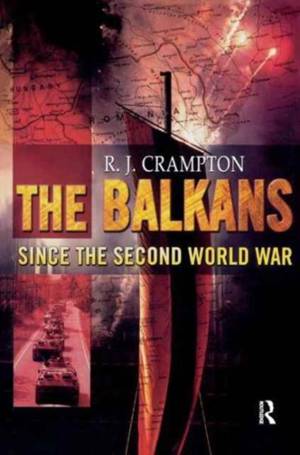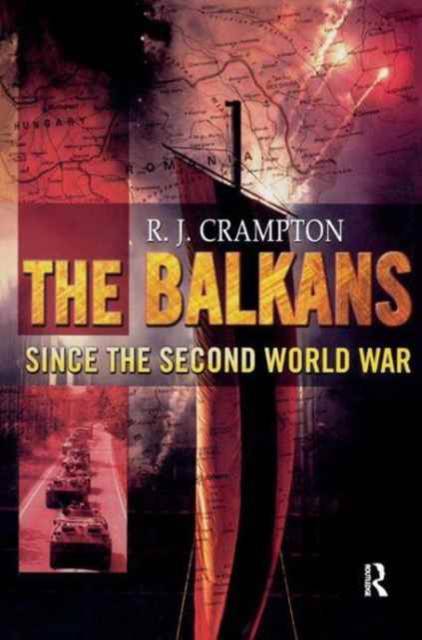
- Afhalen na 1 uur in een winkel met voorraad
- Gratis thuislevering in België vanaf € 30
- Ruim aanbod met 7 miljoen producten
- Afhalen na 1 uur in een winkel met voorraad
- Gratis thuislevering in België vanaf € 30
- Ruim aanbod met 7 miljoen producten
Zoeken
€ 221,95
+ 443 punten
Omschrijving
Since the collapse of Eastern European communism, the Balkans have been more prominent in world affairs than at any time since before the First World War. Crises in the area have led NATO to fire its first ever shots in anger, whilst international forces have been deployed on a scale and in a manner unprecedented in Europe since World War Two.An understanding of why this happened is impossible without some knowledge of the history of the area before the fall of communism, of how the communists came to power and how they used their authority thereafter. Covering the communist states of Albania, Bulgaria, Romania and Yugoslavia, and including Greece, Richard Crampton provides a highly readable introduction to that history, one that will be read by journalists, diplomats and anyone interested in the region and its impact on world politics today.
Specificaties
Betrokkenen
- Auteur(s):
- Uitgeverij:
Inhoud
- Aantal bladzijden:
- 408
- Taal:
- Engels
- Reeks:
Eigenschappen
- Productcode (EAN):
- 9781138162433
- Verschijningsdatum:
- 19/01/2017
- Uitvoering:
- Hardcover
- Formaat:
- Genaaid
- Afmetingen:
- 156 mm x 233 mm
- Gewicht:
- 909 g

Alleen bij Standaard Boekhandel
+ 443 punten op je klantenkaart van Standaard Boekhandel
Beoordelingen
We publiceren alleen reviews die voldoen aan de voorwaarden voor reviews. Bekijk onze voorwaarden voor reviews.











